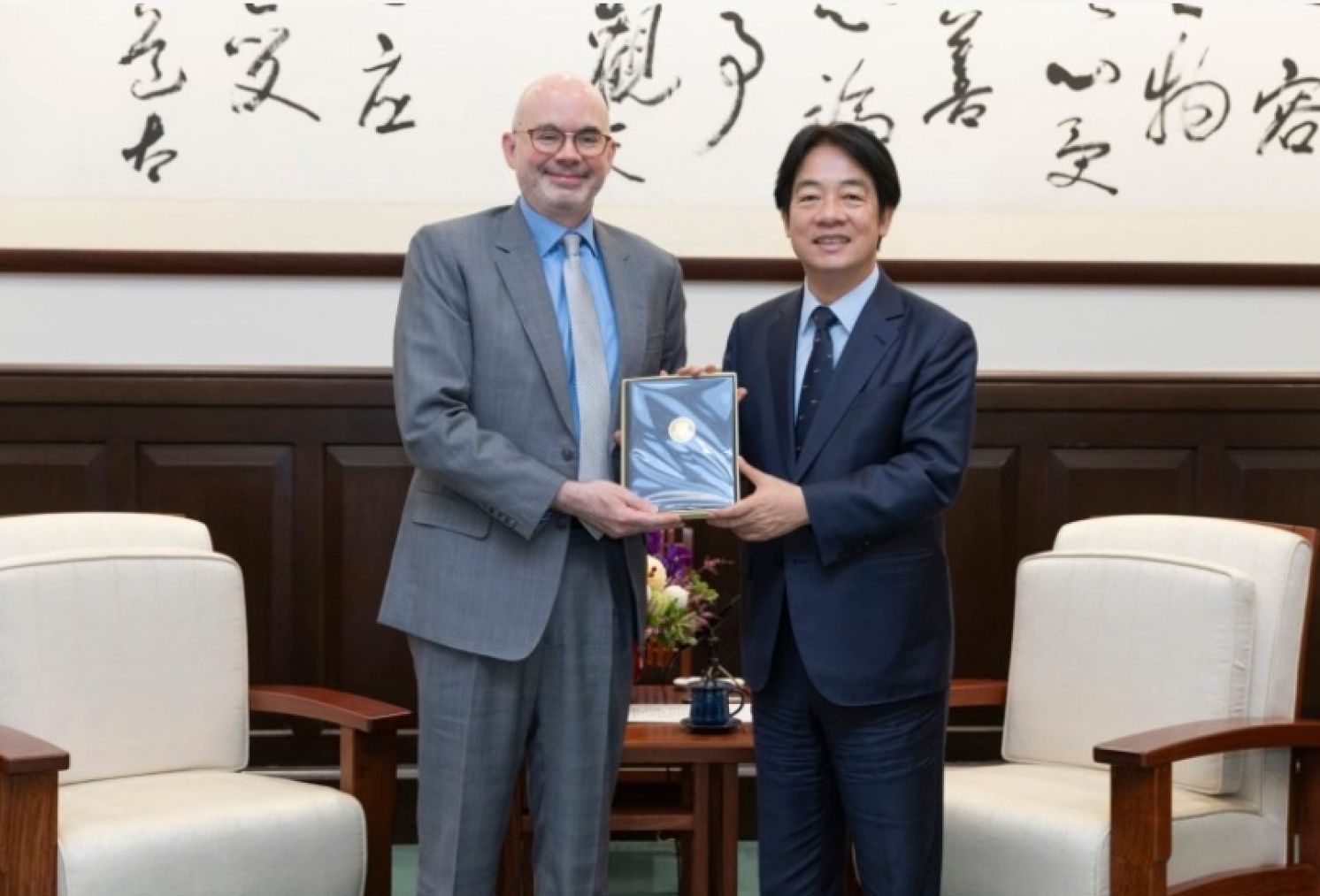
“One China” Erased: Lai Administration Should Not Misjudge
China Times Editorial, July 13, 2024
In the midst of escalating tensions in the Taiwan Strait and fragile U.S.-China relations, Director Raymond Greene of the American Institute in Taiwan (AIT) reiterated the “one China” policy during his recent meeting with President Lai Ching-te. This reaffirmation by the United States, emphasizing its unwavering stance on the “One China” policy, carries significant political implications. However, the Office of the President press release noticeably omitted mention of "One China," focusing solely on policy. The Lai administration, known for its “Two State Theory” advocacy, deliberately downplayed this crucial U.S. policy declaration, risks further isolating and endangering Taiwan's diplomatic and security standing.
Greene Came Prepared, Mentioned Key Words
The AIT press release shows that Mr. Greene clearly came prepared. Following diplomatic pleasantries, he promptly affirmed U.S. commitment to robustly support Taiwan's self-defense capabilities, consistent with the long-standing guidance of the Taiwan Relations Act, Three Communiqués, and Six Assurances under the “One China” policy. In contrast, the Office of the President statement omitted the crucial term "One China," sparking different interpretations. On July 12, the Office of the President clarified it had no intention to silence or distort, urging media to retract related reports. However, the evident discrepancy between the AIT and Office of the President on the sensitive issue of "One China" at such a critical juncture underscores the need for clarity from the Office of the President, rather than shifting blame to the media.
The difference in just two words signifies a vast contrast. Over the past few decades, responsible U.S.-China cooperation on Taiwan has been rooted in the “One China” policy. However, in recent years, China has increasingly doubted U.S. commitment to this policy. President Lai’s inaugural address openly emphasized a "two-state theory," which the Biden administration sees as not substantially different from Lai’s previous stance, though it did not explicitly endorse it. In China's view, despite not endorsing Lai’s speech, the United States tacitly accepted it, further eroding fragile U.S.-China trust and diminishing their joint management mechanisms for Taiwan.
President Lai’s inaugural address was clearly calculated to navigate heightened anti-China sentiments in Washington, hoping that by stating "neither humble nor assertive, maintaining the status quo," she could subtly convey a two-state perspective. However, overconfidence led to misjudgment; President Lai’s new stance contradicts the spirit of Taiwan as a sovereign state under the “One China” policy. Immediately, China labeled President Lai’s speech as a complete "Taiwanese independence declaration" and "promotion of a “Two State Theory,” responding with military exercises and increased military maneuvers around Taiwan on a daily basis, including the detention of the Penghu-based fishing vessel "Da Jin Man 88" as retaliatory measures.
Low-Level Mistake Puts Taiwan in Danger
The ruling Democratic Progressive Party (DPP) continues to advocate de-Sinicization, a new “Two State Theory,” and gradual independence for Taiwan. Official cross-strait exchanges have halted, with significant barriers in civilian interactions. Concurrently, U.S. policy shifts towards Taiwan, compounded by strained U.S.-China relations and global geopolitical changes, exacerbate tensions in the Taiwan Strait. Rather than seeking to reduce hostilities through dialogue, the Lai administration has responded to U.S. demands by enhancing defense capabilities and military activities, inadvertently escalating tensions and increasing the risk of conflict.
Ignoring shifts in U.S.-China relations and global dynamics, President Lai’s inaugural address and subsequent actions have weakened mutual trust between the United States and China, failing to effectively manage Taiwan's issues and allowing China to expand its initiative and leadership role. With uncertainties surrounding the U.S. presidential election and potential return of Trump, America's restraining influence on China weakens, leaving Taiwan vulnerable amidst international skepticism of American foreign policy.
These nuanced recommendations expose critical blind spots in President Lai’s cross-strait and national security policies, highlighting the need for a serious response to U.S. signals. While the possibility of conflict in the Taiwan Strait exists, it is not inevitable. The determination, capability, and wisdom of national leaders will be decisive factors. Despite Mr. Greene’s reaffirming U.S. policy, President Lai and his national security team have struggled to respond adequately, whether by persisting in independence challenges or through errors in actions taken by the Office of the President. In less than two months since inauguration, President Lai’s policies have become a significant variable affecting peace and stability in the Taiwan Strait.
From: https://www.chinatimes.com/opinion/20240713002936-262101